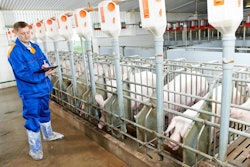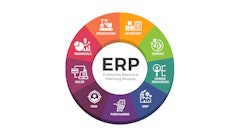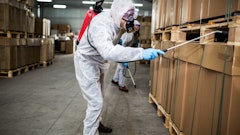While the United States hog industry continues to struggle to contain a virus killing million of pigs, the U.S. Department of Agriculture (USDA) took the offensive by warning on Thursday that the impact on the hog supply would be greater than expected.
Montana and Idaho became the latest in 25 U.S. states and 3 Canadian provinces to report confirmed cases of the Porcine Epidemic Diarrhea virus, or PEDv, bringing the total confirmed cases in the U.S. to 3,528 as of Saturday, up from 2,962 as of Feb. 1, according to data released Wednesday by USDA's National Animal Health Laboratory Network (NAHLN).
Although PEDv does not affect humans and is not a food safety risk, the virus's toll on pigs is trickling up the food chain in the form of industry financial losses and potentially higher pork prices for consumers.
"Mortality rates due to PEDv have been highest among young piglets, which have curtailed the growth in the number of pigs per litter and will likely slow expansion," USDA's chief economist Joseph Glauber said during the agency's annual outlook conference in Washington.
Some U.S. meat companies have said that the virus is driving up hog prices and cutting the pork supply by 2 to 4 percent. In the United States, the world's largest pork exporter with a 65.9 million head hog herd, retail pork prices still hover near record highs, and losses due to the virus are expected to keep boosting hog futures prices.
Analysts and traders have estimated up to 4 million pigs died from the virus, but the hog industry does not have an official death toll. The virus is reported voluntarily, so it could affect more states than has been documented, said Tom Burkgren, executive director at the American Association of Swine Veterinarians.
Research by the U.S. hog industry originally determined it is spread orally through infected pig manure, and can be carried by trucks, boots, clothes and water, but feed containing porcine by-products, including but not limited to plasma, recently came into focus as a means of transmission. The Canadian Food Inspection Agency (CFIA) found the virus in samples of U.S.-origin plasma from a third-party manufacturer for Grand Valley Fortifiers, a livestock feed company based in the province of Ontario. The company recalled the feed.
"If there was some way that that feed got contaminated, we need to find out how that happened, whether there was a breakdown in normal procedures, or whether normal procedures need to be changed," David Meeker, senior vice president of scientific services at the National Renderers Association in Virginia said in an interview on Thursday. "All those things are being considered, but we just can not do much without more facts."
To read more, click HERE.


















